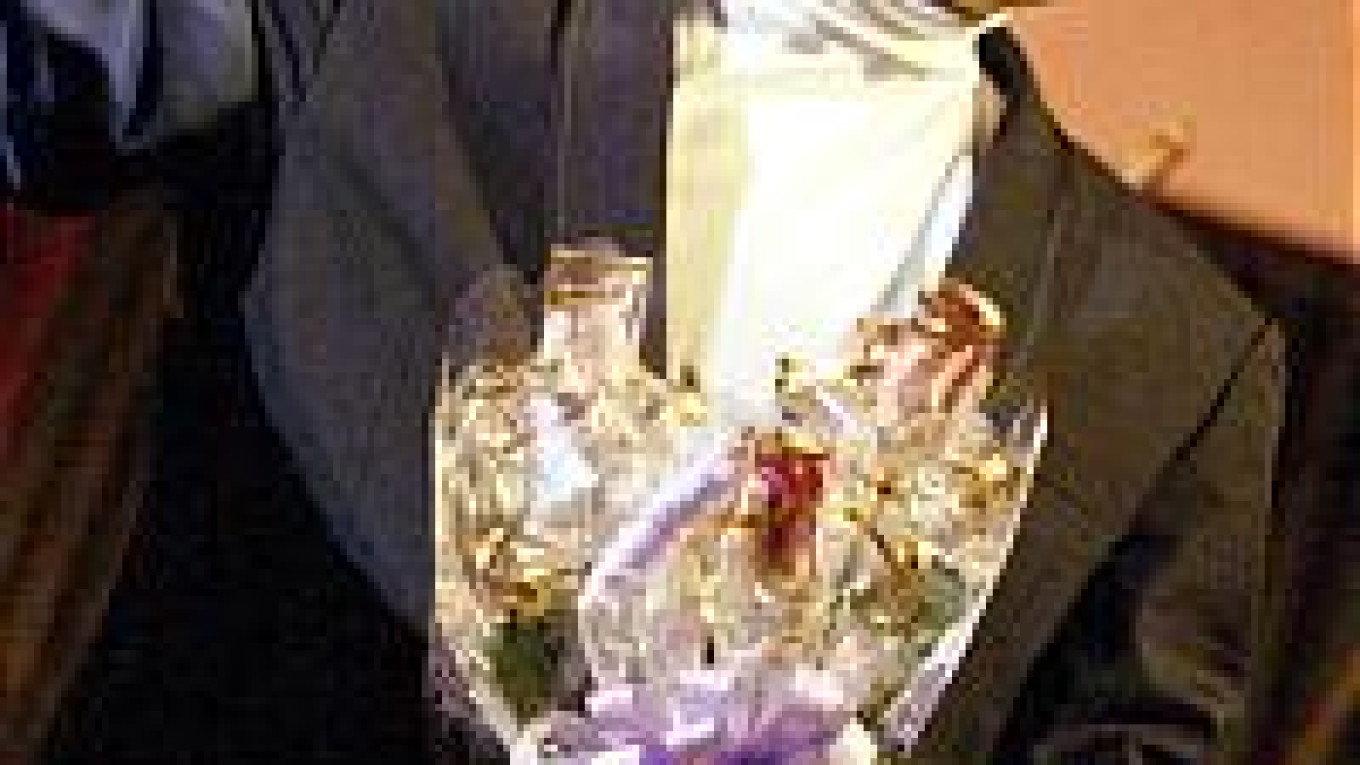"I was thinking about the fact that 2003 marked the 50th anniversary of the deaths of Josef Stalin and Prokofiev, and decided to show the confrontation between art and dictatorship in a clear way," Ashkenazy said in a recent interview in Moscow.
The concerts, featuring works by Prokofiev and Dmitry Shostakovich, focused on the fate of composers during Soviet times. For Ashkenazy, the theme is more than academic. "I couldn't deny myself this idea, since it's connected with my life," the conductor said.
Outstanding musicians were highly valued by the Soviet authorities, as they brought the country fame and prestige. Like composers, however, musicians were not free; just as composers could not write what they wanted, musicians were not free to travel.
The turning point in Ashkenazy's life came when he met the Icelandic pianist Thorunn Johannsdottir, who was studying in Moscow. In 1961, the two young musicians got married. By that time, Ashkenazy's career as a pianist was advancing rapidly; in 1958 he toured the United States, and in 1962 he won first prize in piano at the Tchaikovsky Competition.
"My life could have been absolutely different," said the musician in retrospect. "The fact that I and my wife were allowed to go abroad and were able to stay there, was my greatest stroke of luck." After his London debut in 1963, Ashkenazy decided to remain in the West, living first in England and then in Iceland, where he became a citizen in 1972.
Since the 1970s, Ashkenazy has made a name for himself as a conductor as well, working with orchestras ranging from London's Royal Philharmonic to the Cleveland Orchestra, the Berlin Radio Symphony Orchestra and the Czech Philharmonic Orchestra.
Lately, Ashkenazy has been spending more time in his native country, with three visits to Russia in the last year and a half. Despite being best known in Russia as a pianist, however, Ashkenazy has mainly performed behind the podium.
"I'm not planning to give up the piano -- it's just that I can't devote as much time to it as before," Ashkenazy said. "I have a lot of conducting engagements, and I'm happy about that. I work every day. From 10 a.m. to 3 p.m., I rehearse with the orchestra, and later in the day I get to play."
This month in Moscow, Ashkenazy revisited Russia's past with his "Musicians and Totalitarianism" project. "We are comparing the music that the composers wanted to write with the music that the authorities demanded of them," Ashkenazy explained.
The two concerts featured Shostakovich's "Babi Yar" Symphony, set to poet Yevgeny Yevtushenko's verse about a mass grave of Jews murdered by Germans in World War II. Also to be heard were Prokofiev's "Hail to Stalin" cantata, written for Stalin's 60th birthday in 1939, and Soviet film scores by the two composers.
When he is not touring, Ashkenazy lives in Switzerland, where he settled more than 20 years ago. Future plans include taking up the post of music director at the Japanese NHK Symphony Orchestra, which performed in Moscow and St. Petersburg last spring. Ashkenazy also records prolifically on Decca, and released a piano disc, "Stravinsky: Chamber Works & Rarities," in May.
A Message from The Moscow Times:
Dear readers,
We are facing unprecedented challenges. Russia's Prosecutor General's Office has designated The Moscow Times as an "undesirable" organization, criminalizing our work and putting our staff at risk of prosecution. This follows our earlier unjust labeling as a "foreign agent."
These actions are direct attempts to silence independent journalism in Russia. The authorities claim our work "discredits the decisions of the Russian leadership." We see things differently: we strive to provide accurate, unbiased reporting on Russia.
We, the journalists of The Moscow Times, refuse to be silenced. But to continue our work, we need your help.
Your support, no matter how small, makes a world of difference. If you can, please support us monthly starting from just $2. It's quick to set up, and every contribution makes a significant impact.
By supporting The Moscow Times, you're defending open, independent journalism in the face of repression. Thank you for standing with us.
Remind me later.


